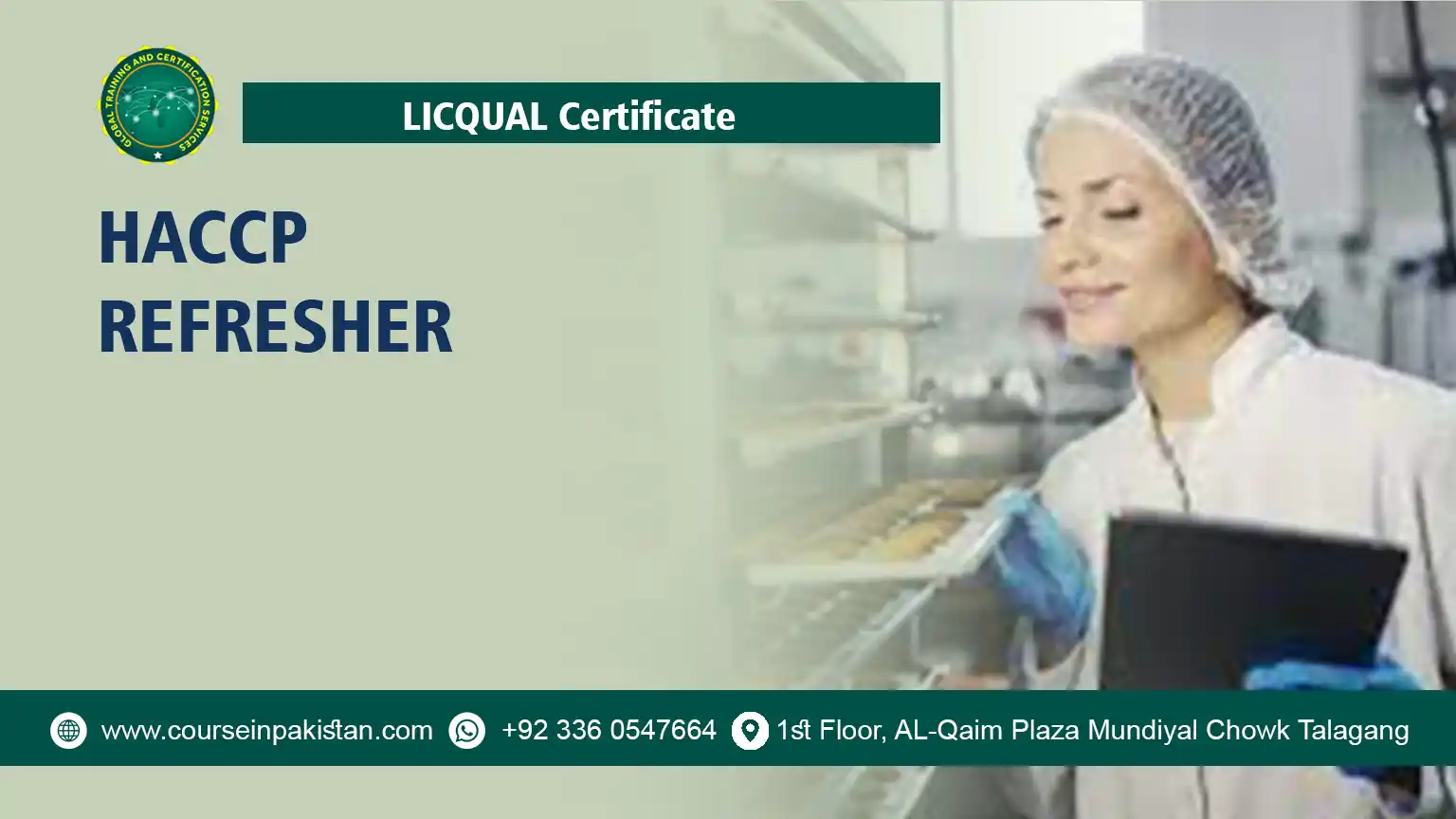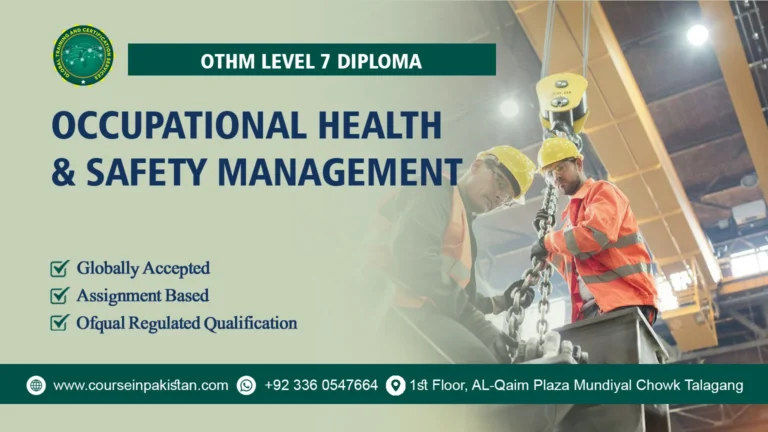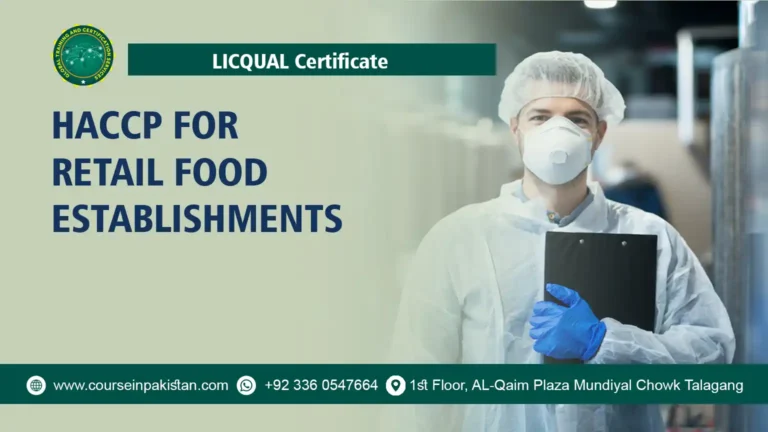
Certificate in HACCP Refresher
In the ever-evolving field of food safety, staying updated with current practices and regulations is paramount. The Certificate in HACCP Refresher is designed to provide professionals already familiar with Hazard Analysis and Critical Control Points (HACCP) principles an opportunity to refresh their knowledge, sharpen their skills, and ensure continued adherence to best practices in food safety management.
Course Introduction
The Certificate in HACCP Refresher course offers a comprehensive review of HACCP principles, focusing on updates in regulations, emerging trends, and best practices in food safety. It aims to reinforce participants’ understanding of critical concepts and equip them with the latest tools and techniques necessary to maintain high standards of food safety.
Course Overview
This refresher course covers essential aspects of HACCP, including hazard analysis, critical control points, monitoring procedures, corrective actions, and documentation requirements. Participants will engage in interactive sessions that emphasize practical applications and case studies relevant to their specific industry sectors.
Course Benefits
- Knowledge Reinforcement: Review and reinforce understanding of HACCP principles and their application in food safety management.
- Regulatory Compliance: Stay updated with the latest regulations and guidelines pertaining to food safety and HACCP.
- Enhanced Skills: Acquire advanced skills in risk assessment, monitoring, and implementing preventive controls.
- Career Advancement: Enhance credibility and career opportunities in roles related to food safety management and regulatory compliance.
Course Study Units
- Introduction to HACCP and its Evolution
- Reviewing the Seven HACCP Principles
- Identifying and Assessing Food Safety Hazards
- Critical Control Points and Monitoring Procedures
- Corrective Actions and Verification in HACCP
- Regulatory Updates and Emerging Trends in HACCP
Learning Outcomes
Introduction to HACCP and its Evolution:
- Understand the origins and evolution of Hazard Analysis and Critical Control Points (HACCP) principles in food safety management.
- Recognize the importance of HACCP in preventing foodborne illnesses and ensuring consumer safety.
- Identify key milestones and developments that have shaped the evolution of HACCP standards globally.
Reviewing the Seven HACCP Principles:
- Gain a comprehensive understanding of the seven principles of HACCP and their application in food safety management.
- Evaluate each principle’s role in identifying, assessing, and controlling food safety hazards throughout the food production process.
- Discuss case studies and examples illustrating the effective implementation of HACCP principles in various industry sectors.
Identifying and Assessing Food Safety Hazards:
- Identify potential food safety hazards, including biological, chemical, and physical contaminants.
- Conduct thorough risk assessments to evaluate the likelihood and severity of identified hazards.
- Prioritize hazards based on their impact on food safety and public health.
Critical Control Points and Monitoring Procedures:
- Define critical control points (CCPs) in food production and processing where control measures are essential to prevent or eliminate hazards.
- Establish monitoring procedures to ensure CCPs are effectively managed and controlled.
- Develop protocols for measuring, documenting, and responding to deviations from critical limits at CCPs.
Corrective Actions and Verification in HACCP:
- Implement corrective actions to address deviations from critical limits or breakdowns in HACCP protocols.
- Verify the effectiveness of HACCP systems through audits, inspections, and testing procedures.
- Develop strategies for continuous improvement based on verification findings and corrective action outcomes.
Regulatory Updates and Emerging Trends in HACCP:
- Stay updated with current regulatory requirements and guidelines governing HACCP implementation.
- Identify emerging trends and innovations in food safety management and their implications for HACCP practices.
- Discuss the role of regulatory agencies and industry standards organizations in shaping HACCP standards and compliance.
These learning outcomes equip participants with the knowledge and skills necessary to effectively implement and manage HACCP principles in food safety management. By focusing on understanding the evolution of HACCP, reviewing its core principles, identifying and assessing food safety hazards, establishing critical control points, implementing monitoring procedures, conducting corrective actions, and staying updated with regulatory requirements, this course ensures that food remains safe, compliant, and of high quality throughout the production and processing stages.
Who is This Course For?
The Certificate in HACCP Refresher is ideal for:
- Food safety professionals and practitioners seeking to update their knowledge and skills in HACCP.
- Quality assurance managers and auditors responsible for ensuring compliance with food safety standards.
- Individuals involved in food production, processing, distribution, and regulatory affairs.
Future Progression for This Course
Completion of the certificate opens pathways for further specialization and career advancement:
- Advanced Food Safety Training: Courses focusing on specific aspects of food safety management, such as allergen control, microbial hazards, or supply chain management.
- Certified HACCP Auditor: Certification for professionals interested in auditing HACCP systems and ensuring compliance with global standards.
- Leadership Roles: Opportunities for leadership positions in food safety management, regulatory affairs, and quality assurance.
Certificate in HACCP Refresher offers a valuable opportunity for food safety professionals to update their knowledge, maintain compliance with regulatory standards, and enhance their skills in implementing HACCP principles. Whether aiming to reinforce current practices or pursue advanced certifications, this course provides the necessary foundation for continuous improvement and excellence in food safety management.





